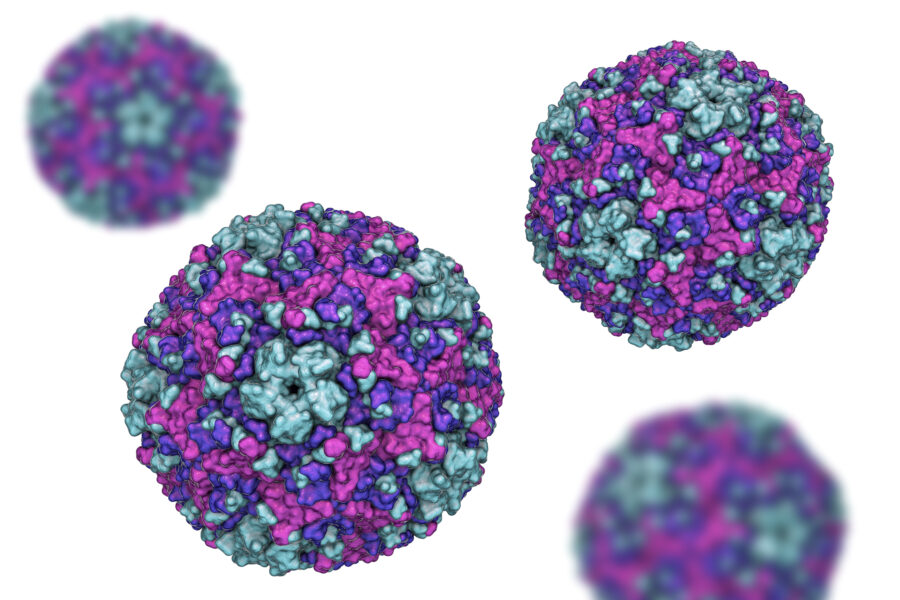Foot-and-mouth disease could be used to treat pancreatic cancer
Ground-breaking research carried out by scientists at Queen Mary University of London, has discovered that specific proteins found in the virus that causes foot-and-mouth disease, could hold the key to tackling the deadliest of the common cancers – Pancreatic Cancer.

What did the research find?
The researchers discovered that a peptide (protein fragment) taken from the foot-and-mouth virus targets another protein, AvB6 which is often found in high levels on the surface of most pancreatic cancer cells.
Lead researcher Professor John Marshall, of Barts Cancer Institute, Queen Mary, University of London said:
“Foot-and-mouth disease virus uses AvB6 as a route to infect cattle, as the virus binds to this protein on a cow’s tongue.”
“By testing pieces of protein in the virus that attaches to AvB6, we’ve developed a route to deliver a drug specifically to pancreatic cancers.”
Working with drug companies AstraZeneca and ADC Therapeutics, the team devised a method to use the foot-and-mouth protein as a transportation vessel to deliver the highly potent drug tesirine to the targeted pancreatic cancer cells.
Tests were conducted on human cancer cells in the lab using the peptide/tesirine combination. Some of the cells had AvB6 on their surface, while others did not. They found that the AvB6 positive cells responded well to treatment, whereas the AvB6 negative cells required far higher doses of the drug for the cells to be killed.
The teams most recent round of experiments found that applying small amounts of the protein-drug combination to mice bearing the AvB6 proteins three times a week caused the tumour to stop growing. The dosage was then increased, and frequency reduced to just twice a week, unbelievably this time round the tumours were completely killed off.
Foot-and-mouth? What does this mean for developing a treatment for humans?
Despite being in the early stages of testing, the researchers are optimistic about the findings of the study. Dr Emily Farthing, senior research information manager at Cancer Research UK, said:
"Although we have made great progress in treating many types of cancer, survival remains stubbornly low for people with pancreatic cancer and there is an urgent need for more effective treatments.
"This early-stage research has developed a promising new drug that reduces the growth of pancreatic tumours in the lab.”
With the research still within the preclinical phase, it is likely that there will be many more rounds of testing before clinical trials can begin. However, the team are hopeful that there is a bright future ahead for the treatment with Dr Farthing stating:
"With further research to see if it is safe and effective for patients, we hope this could one day offer new hope for people with this disease."

Since AvB6 isn’t prevalent in normal pancreases, it is possible that if the drug can be developed into an effective treatment, there would be limited side effects.
For now, the team intends to conduct further experiments using more complex mice models to investigate the therapy’s ability to prevent metastases.
*The research was funded by the charity Pancreatic Cancer Research Fund and published by Theranostics.